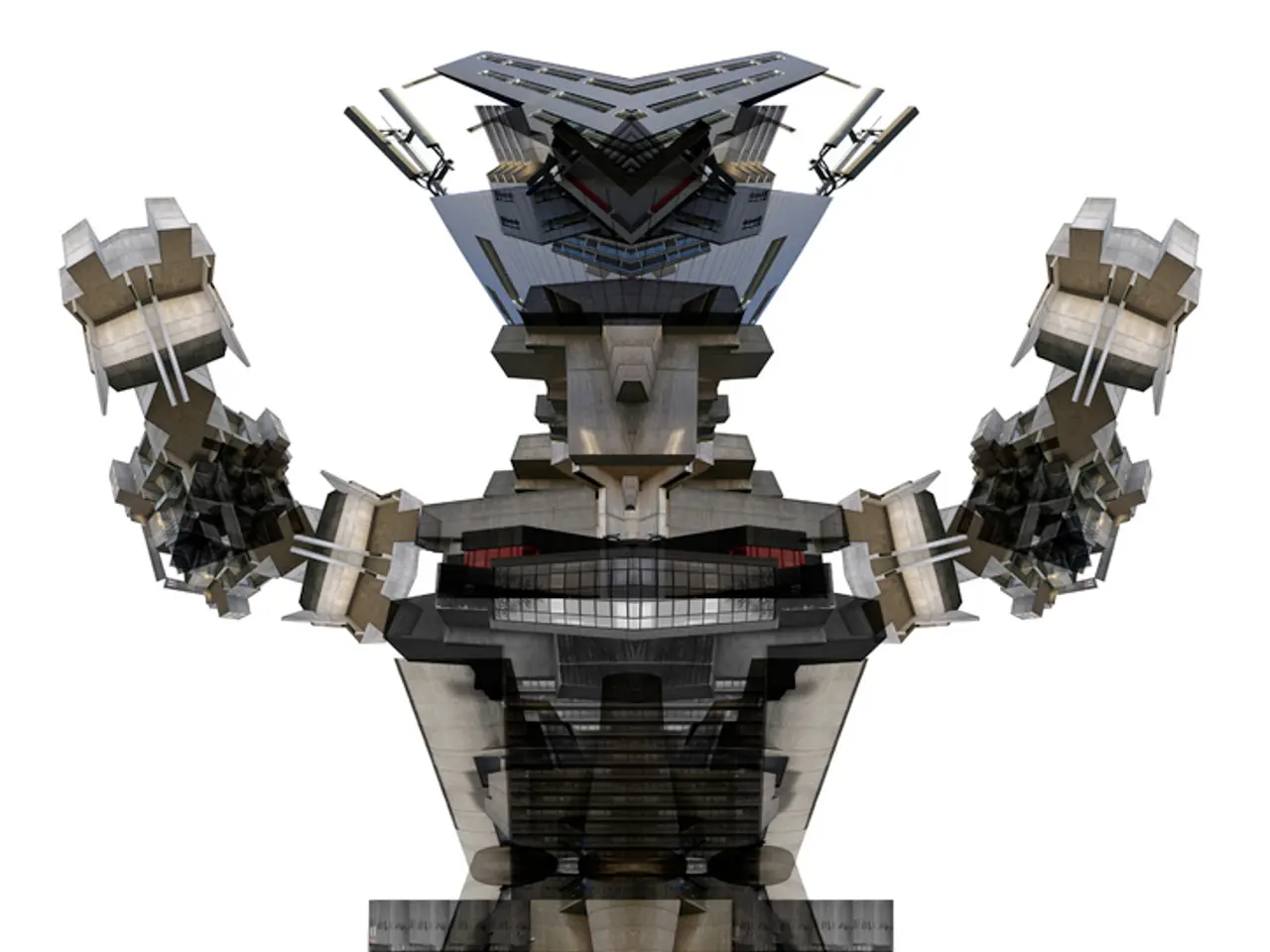Timeless Classics from Science Fiction: Explore Enthralling Narratives That Endure
In the realm of literature, classic science fiction novels have left an indelible mark, shaping modern literature with their thought-provoking narratives and enduring themes. These timeless tales serve as cautionary tales, mirrors reflecting contemporary societal issues, and portals to speculative futures.
One such classic is Ray Bradbury's "The Veldt," a story that warns against the dangers of over-dependence on technology and the neglect of human connections. Another chilling tale, "The Machine Stops" by E.M. Forster, imagines a world where humanity lives underground, relying entirely on a machine for all needs. The failure of this machine leads to chaos, reflecting on the potential consequences of technology overshadowing human experiences and self-reliance.
Ray Bradbury's "The Pedestrian" envisions a future where walking is obsolete, and society is dominated by screens, serving as a warning about the potential consequences of technology overshadowing human experiences.
Isaac Asimov's "The Last Question" traverses across time as humanity grapples with the question of entropy, delving into themes of existence, technology, and the future of the universe.
Philip K. Dick, born in 1928, was known for complex narratives that blur the lines between reality and illusion. His works often explore themes of identity, consciousness, and the impact of technology on society. Notable works include "Do Androids Dream of Electric Sheep?" and "The Man in the High Castle."
"The Cold Equations" by Tom Godwin is a heartbreaking tale about survival and the harsh realities of space travel, diving into moral dilemmas and the unforgiving nature of the universe.
"Nightfall" by Isaac Asimov is a thought-provoking narrative about a world that experiences darkness only once every 2,049 years, examining how civilizations react to the unknown and fear of the dark.
Fahrenheit 451 by Ray Bradbury (1953) serves as a cautionary tale about censorship and the importance of intellectual freedom. "Brave New World" by Aldous Huxley (1932) offers a chilling look at consumerism, technology, and control.
Frankenstein by Mary Shelley (1818) explores the consequences of playing God and questions what it means to be human. This classic work embodies enduring concerns about unchecked scientific ambition, creator responsibility, and the moral challenges of progress.
Classic science fiction often explores the moral implications of scientific advancements, offers utopian or dystopian visions of the future, and serves as a mirror reflecting contemporary societal issues. The tension between idealized societies and dystopian realities is a central theme, as seen in Arthur C. Clarke's Childhood’s End that explores the cost of utopia and societal transformation under alien intervention.
Science fiction frequently critiques social structures, inequality, and political oppression through dystopian or speculative societies, as seen in "Harrison Bergeron" by Kurt Vonnegut, which showcases a dystopian future where everyone is forced to be equal through physical and mental handicaps, critiquing the idea of enforced equality and challenging readers to think about individuality.
Themes of human evolution, both biological and societal, are common, inviting contemplation of humanity’s destiny and transformation. Ursula K. Le Guin's "The Left Hand of Darkness" challenges conventional notions of gender and sexuality.
These themes collectively underpin much of modern science fiction literature by providing a framework to examine evolving human concerns with technology, society, and identity in speculative contexts. Classic works by authors like Arthur C. Clarke, H.G. Wells, and Mary Shelley have established these ideas as foundational motifs for the genre.
Other iconic works include "A Sound of Thunder" by Ray Bradbury, which explores the butterfly effect through time travel, teaching us about the fragility of ecosystems and the interconnectedness of all things. "The Lottery" by Shirley Jackson is a chilling tale about a small town's annual ritual, revealing the darker side of tradition and conformity.
"There Will Come Soft Rains" by Ray Bradbury envisions a house that continues to function after humanity has disappeared due to nuclear war, reflecting on the themes of nature versus technology and the transience of human existence. "The Time Machine" by H.G. Wells (1895) introduces time travel and critiques social class and evolution.
Ray Bradbury, born in 1920, was an American author known for his poetic prose, imaginative narratives, and warnings about censorship and the importance of creativity. H.G. Wells, Isaac Asimov, Aldous Huxley, George Orwell, Frank Herbert, Ursula K. Le Guin, and Ray Bradbury are iconic authors in the field of classic science fiction.
- Science fiction often delves into the moral implications of technological advancements, offering utopian or dystopian visions of the future and reflecting contemporary societal issues.
- Ray Bradbury's "The Veldt" warns against the dangers of over-dependence on technology and the neglect of human connections.
- Isaac Asimov's "The Last Question" traverses across time as humanity grapples with the question of entropy, delving into themes of existence, technology, and the future of the universe.
- Frankenstein by Mary Shelley explores the consequences of playing God and questions what it means to be human, embodying enduring concerns about unchecked scientific ambition, creator responsibility, and the moral challenges of progress.
- Classic science fiction frequently critiques social structures, inequality, and political oppression through dystopian or speculative societies, as seen in "Harrison Bergeron" by Kurt Vonnegut.
- Themes of human evolution, both biological and societal, are common in science fiction, inviting contemplation of humanity’s destiny and transformation, such as in Ursula K. Le Guin's "The Left Hand of Darkness" which challenges conventional notions of gender and sexuality.




